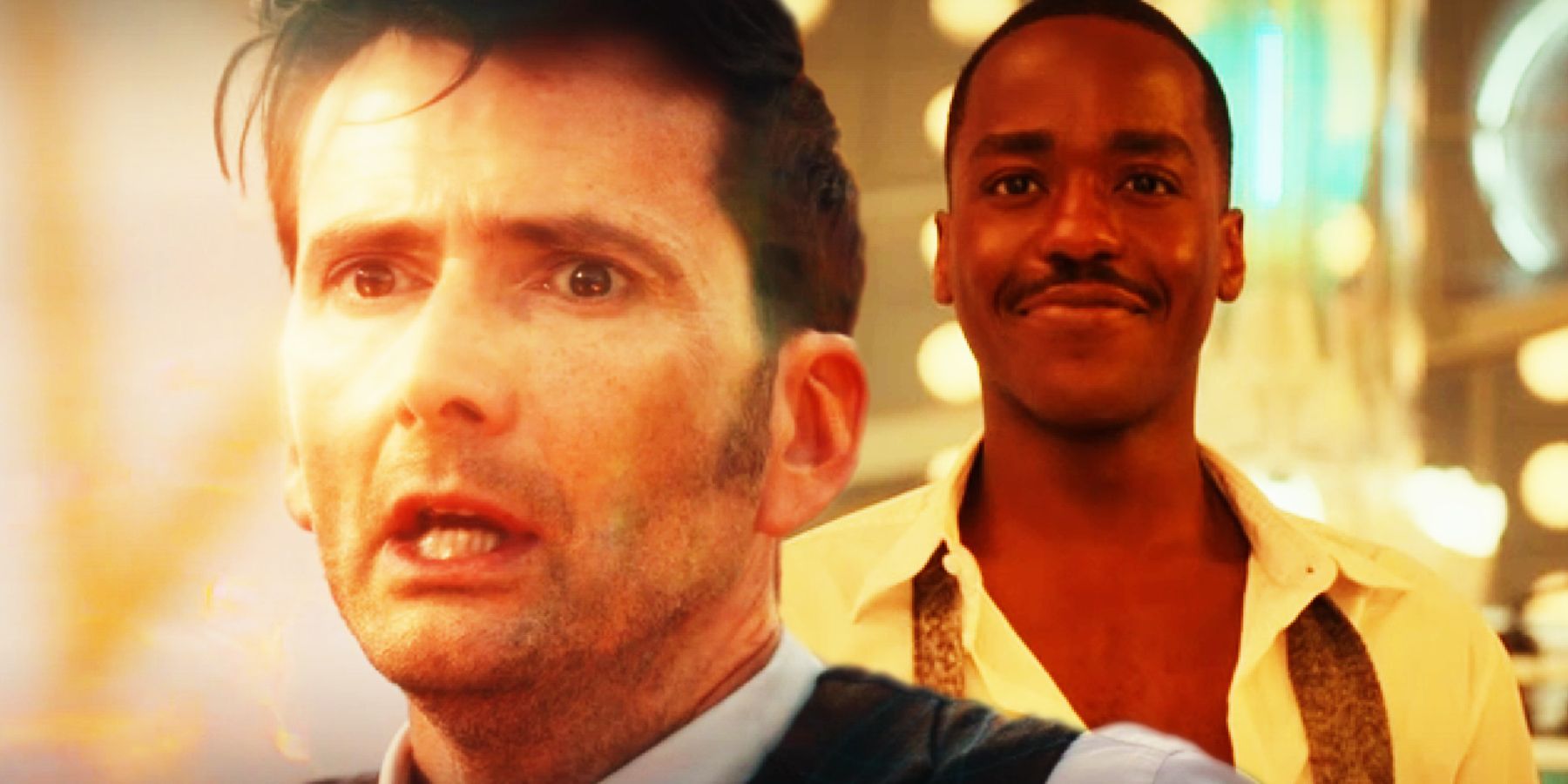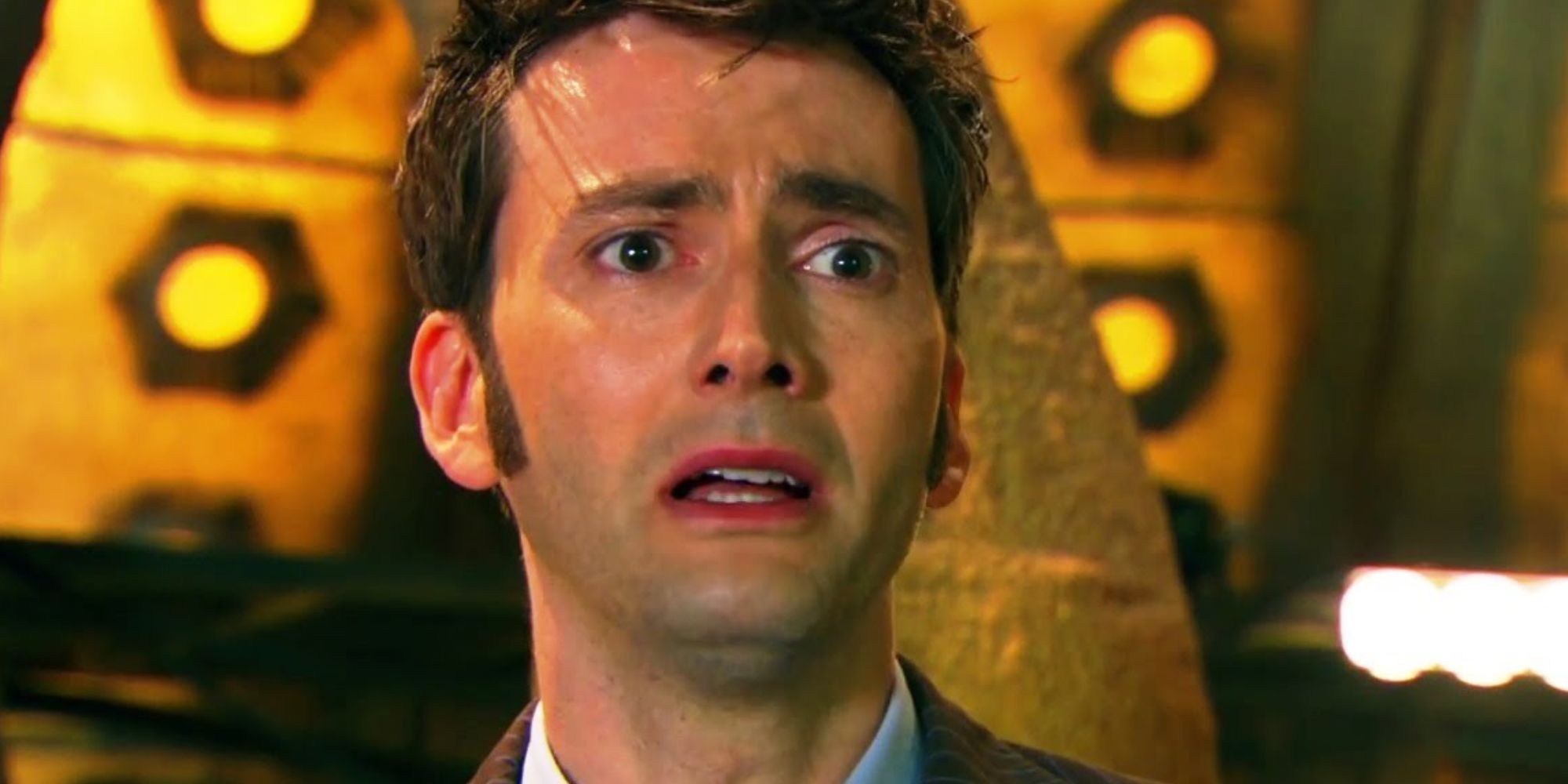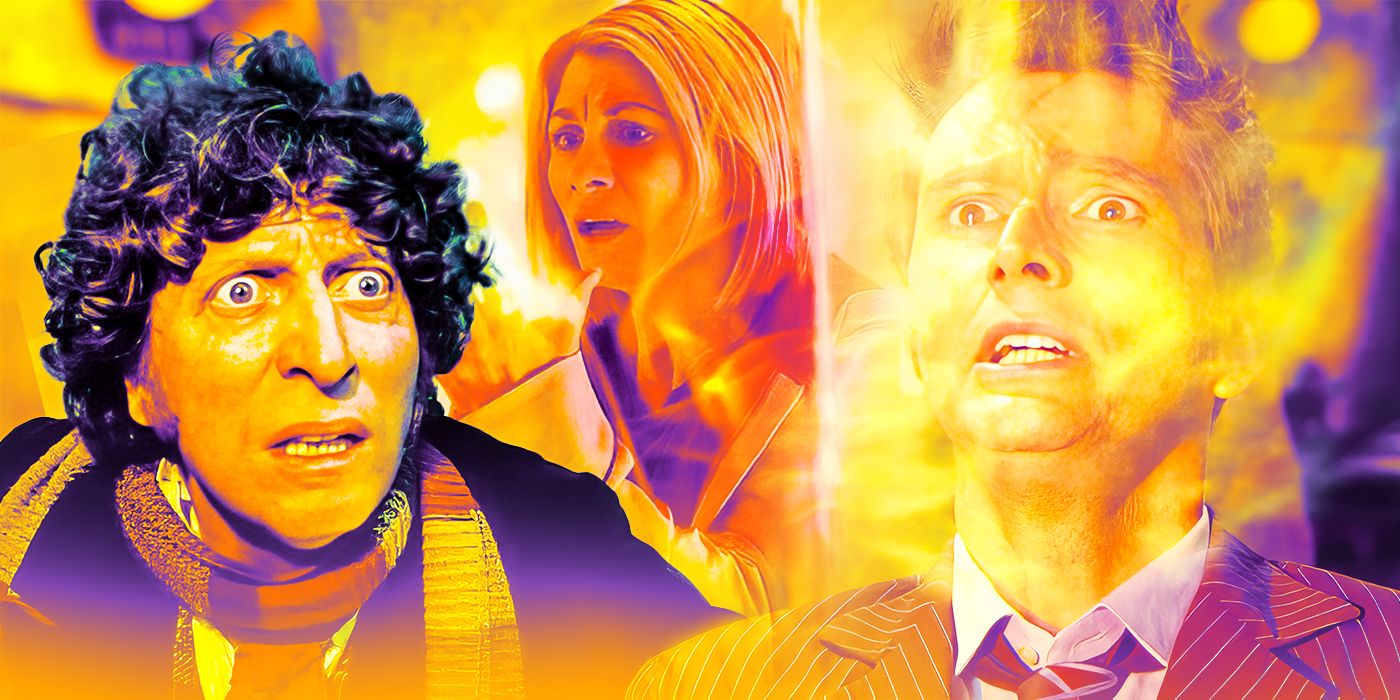The introduction of bi-generation to Doctor Who lore has already raised issues regarding Ncuti Gatwa’s eventual departure. While the long-running British sci-fi show has never been afraid to make bold additions to its canon, the concept of bi-generation creates more issues with future narratives than most. Regeneration as it’s commonly understood in the Doctor Who universe has been around for decades. However, Russell T Davies’ added twist to the process may have done more harm than good.
The process of regeneration came about as a plot device when William Hartnell quit as the First Doctor way back in the 1960s. It allowed Hartnell’s recasting as the Time Lord to have an in-universe explanation. Every actor who has played the Doctor since then has only been able to do so because of the ingenuity of the writers from the classic era. Bi-generation would seem to be the next step in evolving the process, but it could negatively impact Doctor Who season 14 and beyond if it’s not handled correctly.

Doctor Who’s Shocking New Bi-Generation Explained
David Tennant and Ncuti Gatwa have made Doctor Who history with the Doctor’s first ever bi-generation, but what does it mean for the future?
Bi-Generation Takes The Danger Out Of Ncuti Gatwa’s Regeneration
Fifteen’s ending could be affected by bi-generation

Prior to the introduction of bi-generation as part of the ending of the Doctor Who 60th anniversary specials, the regeneration scene of an active Doctor was a highly emotional affair. Although regeneration isn’t the same thing as dying, it causes the current version of the Doctor to stop existing. The emotion comes from viewers becoming attached to certain iterations of the Doctor, as well as the fact that the actual character never seems to want to endure the process.
Given the origin of Gatwa’s Fifteenth Doctor, it wouldn’t be unreasonable to assume that when he steps away from leading the show, his version of the Time Lord may continue to exist within Doctor Who. As a result, any risks undertaken by Fifteen will also come with the knowledge that many injuries that could trigger a regeneration cycle may just instigate another instance of bi-generation instead. If so, then Fifteen would split into two Doctors, remaining active himself while also spawning a new version.
Bi-generation may have been an exciting revelation the first time it happened, but repeat occurrences just mean the emotional center of the show has been ruined. A Doctor’s exit from Doctor Who is just as much a rite of passage as their introduction, and bi-generation could rob future actors who play the Doctor of their heartfelt farewell to both the show’s characters and its fans.
Bi-Generation Means Writers Are Now Choosing To Kill Off Outgoing Doctors
All future Doctors could now technically continue forever in Doctor Who

As well as creating too many solutions to the Doctor’s jeopardy within the world of Doctor Who, bi-generation may also influence writing decisions in future scripts. Regeneration as a process has always just been a fact of the Doctor’s biology. When the Doctor is severely injured, regeneration allows them to completely transform their body to cheat death. Although it allows the Doctor to keep living, regeneration still essentially kills the current version of the character. Bi-generation presents the issue of giving the show’s writers the choice of not killing the Doctor, which was out of their hands before now.
In theory, bi-generation means that all future versions of the Doctor need never die ever again. Instead, the Time Lord would just continue to split in two following a fatal injury. The fact it exists now makes a conventional regeneration process look harsh and unnecessary. When it’s possible to keep every version of the Doctor intact using bi-generation, writing a story where the Doctor regenerates in the standard way means that that version of the Time Lord is now being intentionally, and arguably unnecessarily, sentenced to death. This wasn’t even something that had to be considered before bi-generation.
Doctor Who Needs To Confirm The Doctor Can’t Ever Bi-Generate Again
The Doctor Who writers must establish bi-generation’s limitations
Shortly after David Tennant’s bi-generation scene, the newly-spawned Fifteenth Doctor states he previously believed the process to be a “myth.” This would imply that it’s the only known instance of a Time Lord dividing in this way. If the scene remains an isolated incident within Doctor Who canon, then all the issues it raises subside. However, the show needs to actively state that this is indeed the case and that all regenerations from Gatwa onward will be more traditional.

Why Each Doctor Regenerated In Doctor Who
Doctor Who’s titular Time Lord has regenerated many times over the years, but the process has been triggered by a wide array of injuries.
If the show explains why bi-generation is a one-time occurrence, then any ambiguity surrounding the Doctor’s fate going forward would be cleared up. Leaving the issue unaddressed makes the rest of the Doctor’s timeline murky and unpredictable, but not in a genuinely compelling way. So, although bi-generation injected some much-needed excitement into the 60th-anniversary celebrations, its continued use in Doctor Who would likely just detriment the show.
Doctor Who
- Release Date
- November 23, 1963
- Cast
- Jenna Coleman , Jodie Whittaker , Alex Kingston , David Tennant , Matt Smith , Peter Capaldi
- Seasons
- 26




